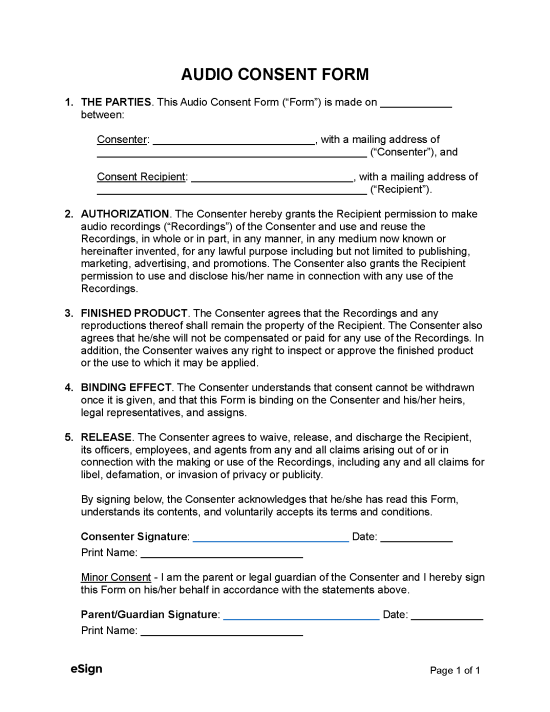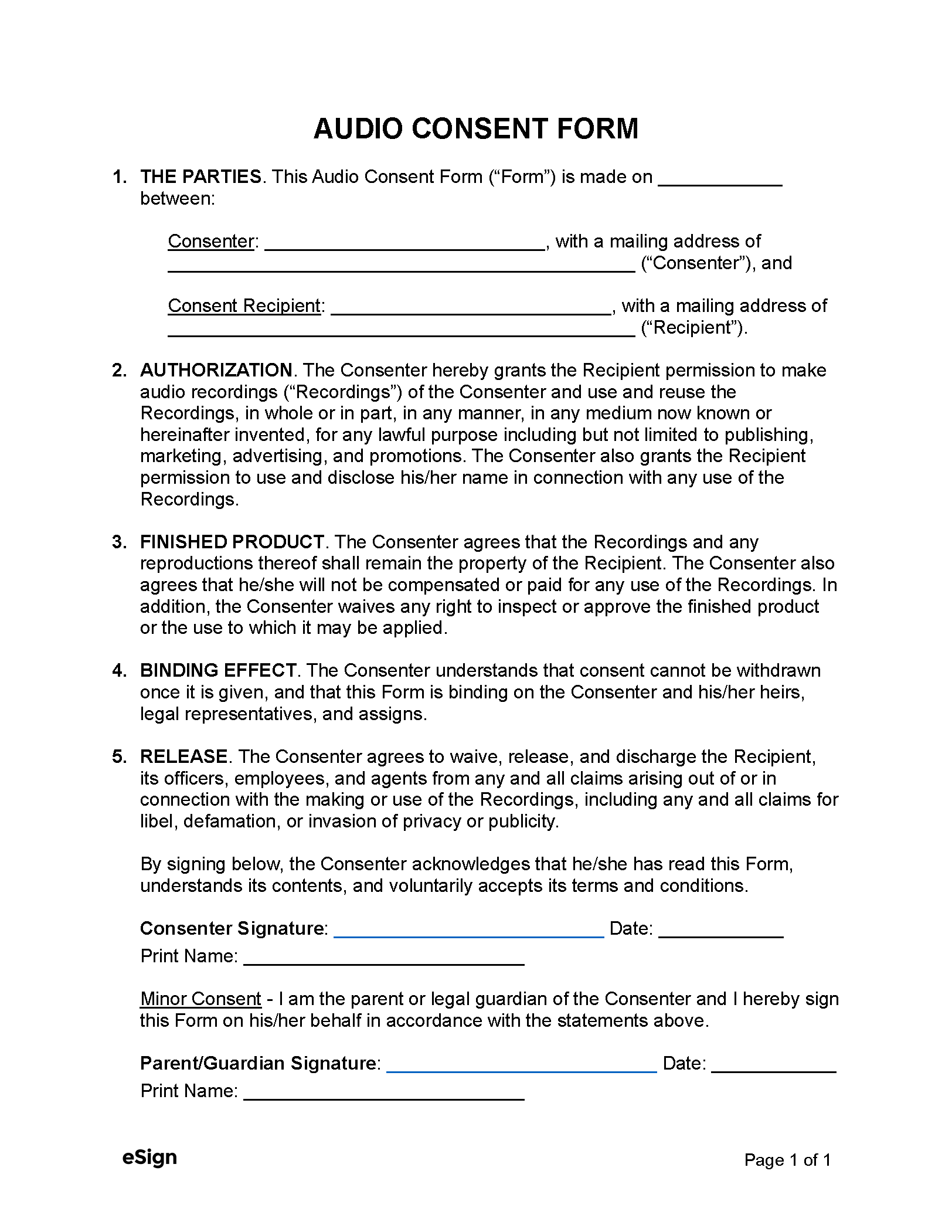When to Sign an Audio Consent Form
An audio consent form, or “audio release form,” should be signed if an audio recording of someone else’s voice or performance is used for commercial purposes or made available to the public. Obtaining consent to record and use audio is typically required for:
- Podcasts
- Television and radio advertisements
- Social media posts
- Research studies and focus groups
- Job interviews
Recording Private Conversations
Federal law prohibits recording in-person, electronic, or telephone conversations without consent from at least one participant.[1] However, some states have stricter regulations requiring consent from all parties involved.
Individuals should always check their state’s laws to determine whether they must obtain consent before recording a private conversation. Depending on the state, this matter may be referred to as eavesdropping, wiretapping, or intercepted communication.

